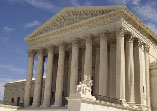|
|
|
IMergent Agrees to Settle Class Action
Class Action |
2007/09/21 10:46
|
| E-commerce software provider iMergent Inc. said Friday it has entered into a memorandum of understanding to settle a class action lawsuit against the company for $2.8 million. IMergent expects to pay the $2.8 million settlement to the class plaintiffs through the directors and officers insurance policy maintained by the company. As a result, iMergent said the settlement is not expected to affect the company's operating results. According to Securities and Exchange Commission filings, the complaint alleges that the defendants violated federal securities laws by making material misleading statements and omissions, providing inaccurate financial information, and failing to make proper disclosures. The initial class action suit was filed in 2005. The company denies liability. The memorandum of understanding is subject to certain contingencies that require court approval, including a provision that prevents its former independent auditors Grant Thornton LLP from prosecuting any claims against the company related to the litigation.
|
|
|
|
|
|
|
Market volatility spurs class action
Class Action |
2007/09/14 11:45
|
| Employees participating in Countrywide Financial Corporation's 401(k) plan have filed a class-action lawsuit claiming the firm lost millions of dollars of their pension money during the recent market volatility. The case is against the mortgage company, its CEO, Angelo Mozilo, and all those responsible for overseeing the employees' retirement plan. Workers alleged illegal actions by the firm caused thousands of 401(k) plan participants to lose millions, after the company's stock plummeted when its financial situation became clear. It was further alleged that while Mozilo and the insider-appointed benefits committee members had a fiduciary responsibility to warn employees of the company's precarious financial health, they hid information from plan participants. Financial statements were also alleged to have been certified by Mozilo in an attempt to conceal the high-risk loans it was selling. Steve Berman, the attorney representing the plaintiffs, said: "Most of these employees weren't risk takers, rather claims processors and line staff who go to work every morning, putting a little away every month for retirement, or to finance a child's education." Countrywide Financial Corporation responded by saying that it had not yet seen the lawsuit, and did not generally comment on specific points of pending litigation. A spokesperson said: " From what we can discern from the news release put out by the public relations firm for plaintiffs’ counsel, we do not believe the case has merit, and we will defend it vigorously. “Countrywide values its work force, which we believe is among the most dedicated and talented in our industry, and we believe our 401(k) program is properly structured and provides competitive benefits to employee participants."
|
|
|
|
|
|
|
EMC Faces Class-Action Lawsuit
Class Action |
2007/09/13 04:59
|
EMC Corp. could face a sexual discrimination class action lawsuit, if a judge opens an existing case up to other female EMC workers, the Wall Street Journal reported Wednesday.
Two women filed a lawsuit against the IT giant in 2004, alleging discrimination and harassment. On Monday, a judge for the U.S. District Court in Northern Illinois will hear arguments about whether to allow other women who worked in sales at EMC from 2001 to 2004 to join the suit, according to the Journal. In a letter posted to EMC's Web site, Joe Tucci, the company's chairman, president and CEO strongly denied that discrimination or harassment happened or continue to occur at the company. "EMC has long been committed to maintaining a workplace free of discrimination and harassment, with significant opportunities for every employee to succeed and grow," he wrote. He said that during the four years covered by the case, women sales reps at the company in the U.S. earned, on average, more than their male counterparts. Since 2001, the number of women at the vice president and senior vice president levels has more than doubled and the number of women at the director level has nearly tripled, he wrote. However, the suit filed by former sales representatives Tami Remien and Debra Fletcher paints a very different picture. At the time they filed the suit, they said just one of EMC's most senior executives was a woman and that the Chicago sales office of 30 had at most six women. Remien's managers, according to the suit, denied her the engineering and managerial support that her male counterparts received, took accounts that she had begun selling products to and gave them to less successful male sales people, and was told that she couldn't take on certain accounts because she didn't tolerate strip clubs, hunt, fish, drink or smoke. She claims that when she complained to human resources, her managers retaliated by taking away essentially all of her accounts and continued to deny her support. She also claims that her boss often shouted gender-based obscenities at her and called her stupid. Fletcher had similar experiences under the same manager. She also once made a large sale but her commission was given to a male co-worker because he had a family, according to the suit. One account was taken away from her after she was falsely accused of having a sexual relationship with the client, the suit claims. Both women were let go from their jobs at EMC after being left with no accounts or with accounts that didn't generate revenue. |
|
|
|
|
|
|
Tarragon faces class action suit
Class Action |
2007/09/12 19:00
|
| A San Diego law firm said it filed a class action lawsuit Tuesday against Tarragon Corp. in the U.S. District Court for the Southern District of New York on behalf of purchasers of Tarragon's common stock between January 5, 2005, and Aug. 9, 2007. Coughlin Stoia Geller Rudman & Robbins LLP alleges Tarragon and certain of its officers and directors issued materially false and misleading statements regarding the company's business and financial results. A Tarragon spokesman said it's the company's policy not to comment on pending litigation. The complaint claims Tarragon stock traded at artificially inflated prices, reaching a high of $26.76 a share on July 22, 2005, as a result of defendants' false statements. The stock then fell, reaching 94 cents a share on Aug. 9, when Tarragon said its quarterly report would be delayed to give the company time to evaluate more than $125 million in property impairment charges and other write-downs made necessary by its decision to sell properties under adverse market conditions. Tarragon and its subsidiaries are active in the Northeast, Florida, Texas and Tennessee. Fort Lauderdale-based subsidiary Tarragon South is the developer of Las Olas River House, a high-rise in downtown Fort Lauderdale that was completed last year, but still has at least 22 units up for sale; and a planned mixed-use project with a condo tower on the site of the Gay & Lesbian Community Center on Andrews Avenue in Fort Lauderdale. Tarragon is also an equity partner with Coscan Homes in Orchid Grove, a condo and townhouse community under construction in Pompano Beach. |
|
|
|
|
|
|
Judge OKs final settlement in Sprint class action
Class Action |
2007/09/10 13:02
|
| A federal judge in Kansas approved a final settlement in a class-action lawsuit between Sprint Corp. and nearly 1,700 former employees who claimed they were laid off because of their age. The two sides reached a $57 million settlement in May, which got its final approval by District Judge John Lungstrum. Roughly $20 million will go to the nearly 20 attorneys who handled the case for the plaintiffs, as well as other court costs, according to John Phillips, a Blackwell Sanders LLP lawyer who served as special master for the case. Shirley Williams originally filed the discrimination case after she and several other employees were laid off in October 2001. Layoffs occurred again in March 2003. The plaintiffs accused the company of using a computerized performance management system to determine which employees to let go. The plaintiffs contended that the system unfairly singled out employees older than 40. A Sprint Nextel Corp. spokesman said at the time of the settlement agreement in May that the company settled the case to move on with business. A Sprint Nextel representative was not immediately available for comment on Monday. |
|
|
|
|
|
|
KGS Announces Filing of Securities Class Action Lawsuit
Class Action |
2007/09/10 03:01
|
Kahn Gauthier Swick, LLC ("KGS") has filed the first class action lawsuit against China Sunergy Co. Ltd. ("China Sunergy" or the "Company") (NASDAQ: CSUN) in the United States District Court for the Southern District of New York, on behalf of shareholders who purchased the common stock of China Sunergy in connection with the Company's IPO on or about May 17, 2007, or who purchased shares thereafter in the open market. No class has yet been certified in this action. UNLESS A CLASS IS CERTIFIED, YOU ARE NOT PERSONALLY REPRESENTED BY COUNSEL UNLESS YOU RETAIN AN ATTORNEY. China Sunergy, certain of its officers and directors, and the Company's underwriters are charged with including, or allowing the inclusion of, materially false and misleading statements in the Registration Statement and Prospectus issued in connection with the IPO, in violation of the Securities Act of 1933. Particularly, the Complaint charges that China Sunergy raised over $107.52 million through the issuance of 9.775 million shares, despite the Registration Statement's false and misleading statements that the Company: (1) was a "leading manufacturer of solar cell products, as measured by production capacity" that was experiencing remarkable revenue growth; and (2) had secured a sufficient supply of polysilicon, a raw material necessary to the continued production of its solar cell products. Yet at the time of the IPO and unbeknownst to shareholders, the Registration Statement failed to disclose that China Sunergy was already having difficulty obtaining a sufficient supply of polysilicon, which foreseeably would have a near-term adverse impact on earnings. On July 3, 2007, only weeks after the IPO, China Sunergy issued a press release announcing preliminary results for 2Q:07 well below guidance, and claimed that it could suddenly not obtain critical raw materials necessary for production and its revenue goals. The Company's press release stated that "the relatively tight supply of polysilicon affected the quality, quantity and delivery of wafers and drove up overall wafer prices in the spot market, resulting in increased pressure on China Sunergy's margins." On this news, shares of China Sunergy fell nearly 25% in a single trading day, from a high of $14.90 on July 2, 2007, to a close of $11.28 the following day, on exceedingly high volume of 3.659 million shares. As the impact of China Sunergy's belated disclosures resonated in the market, shares of the Company continued to decline, to about $7.50 per share by August 23, 2007. Shares fell significantly lower days later, to below $5.00 per share -- on news that the Company's CFO was resigning -- after China Sunergy revealed a loss of at least $.14 per share for 2Q:07. In all, China Sunergy shares fell from $16.70 per share from the highs following the IPO, to a low of below $5.00 per share -- all within approximately 10 weeks. If you wish to serve as lead plaintiff in this class action lawsuit, you must move the Court no later than November 9, 2007. Any member of the purported class may move the Court to serve as lead plaintiff through counsel of their choice, or may choose to do nothing and remain an absent class member. If you would like to discuss your legal rights, you may e-mail or call KGS Managing Partner Lewis Kahn, without obligation or cost to you, toll free 1-866-467-1400, ext. 100, or by email at lewis.kahn@kgscounsel.com. To learn more about this case or KGS, you may visit http://www.kgscounsel.com/case/case.asp?lngCaseId=5014. KGS focuses its practice on securities class action litigation, and has been appointed lead counsel in numerous federal securities class actions. |
|
|
|
|
|
|
Court Denies Class Status for Plaintiffs Against Merck
Class Action |
2007/09/07 08:51
|
| New Jersey's Supreme Court rejected on Thursday a class-action lawsuit against Merck & Company over the drug maker's withdrawn painkiller Vioxx. The ruling is a huge legal victory for the company, which faces nearly 27,000 individual lawsuits from people claiming that Vioxx, once a widely used arthritis treatment, caused heart attacks and strokes. The state's highest court, reversing two lower court decisions, ruled that a nationwide class was not appropriate for the lawsuit. The suit had been brought by a union health plan on behalf of all insurance plans that paid for Vioxx prescriptions, or about 80 percent of all Vioxx sold. A lawyer for the New Jersey union said that because the state's consumer fraud law allows for triple damages, the case could have cost Merck $15 billion to $18 billion. The company's annual revenue last year was $22.6 billion. Had the class action been allowed to proceed, it also would have been a major setback to the company's strategy of fighting the Vioxx lawsuits individually. Of the cases that have reached verdicts, Merck has won nine and lost five. A new trial was ordered in one case, and two others ended in mistrials this year. Shares of Merck, which is based in Whitehouse Station, N.J., rose more than 2 percent, to $50.47, Thursday. "We were thrilled with the decision," said John Beisner, who argued the case for Merck. Christopher A. Seeger, lead lawyer for the plaintiff, the International Union of Operating Engineers Local 68 in West Caldwell, N.J., said he would pursue separate claims on behalf of individual health plans. He said that the high court did not rule that the state's consumer fraud law could not be applied to health plans from other states, so those claims could still be pursued in New Jersey, with the possibility of triple damages. "Merck temporarily dodged a bullet," he said. "Merck didn't totally dodge the bullet."
|
|
|
|
|
|
|
Class action or a representative action is a form of lawsuit in which a large group of people collectively bring a claim to court and/or in which a class of defendants is being sued. This form of collective lawsuit originated in the United States and is still predominantly a U.S. phenomenon, at least the U.S. variant of it. In the United States federal courts, class actions are governed by Federal Rules of Civil Procedure Rule. Since 1938, many states have adopted rules similar to the FRCP. However, some states like California have civil procedure systems which deviate significantly from the federal rules; the California Codes provide for four separate types of class actions. As a result, there are two separate treatises devoted solely to the complex topic of California class actions. Some states, such as Virginia, do not provide for any class actions, while others, such as New York, limit the types of claims that may be brought as class actions. They can construct your law firm a brand new website and help you redesign your existing law firm site to secure your place in the internet. |
Law Firm Directory
|
|










